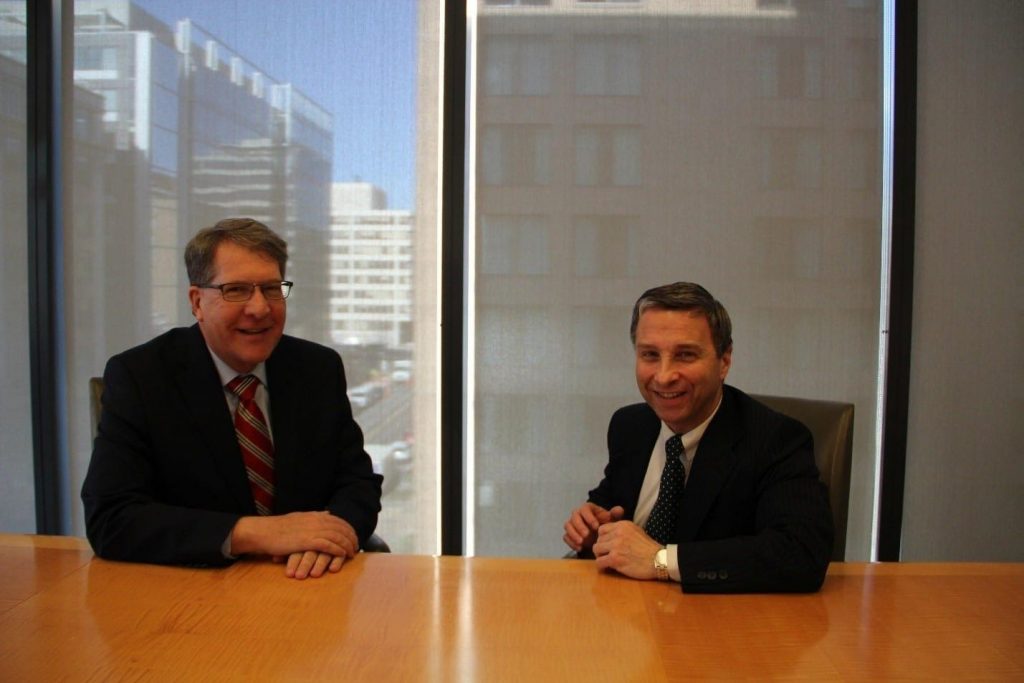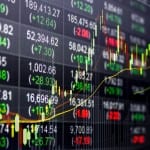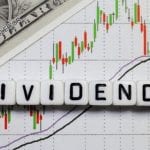Four Fertilizer Stocks to Purchase Amid Putin’s Unprovoked Attacks and Perilous Policies
By: Paul Dykewicz,

Four fertilizer stocks to purchase, amid Russia’s President Vladimir Putin’s unprovoked attacks on Ukraine and his perilous policies for his citizens, should benefit from economic sanctions enacted by many countries and companies that have responded to the former KGB agent ordering the invasion of his peaceful neighboring nation.
The four fertilizer stocks to purchase in light of Russia starting a war with Ukraine should be helped by the pressure Putin is facing to stop military actions that include brutally bombing civilian targets such as hospitals, schools, residential buildings and cultural sites. Putin’s deployment of an estimated 150,000 Russian troops in Ukraine has resulted in a 40-mile convoy that is heading toward the country’s capital of Kyiv.
Russia’s attack on Ukraine jeopardizes the agricultural capabilities of the sovereign nation that Putin has invaded from the land, air and sea, while spurring the European Union, the United States, Japan, South Korea, Australia and others to limit the attacking country’s exports and access to financial transactions. The purpose of the sanctions is to restore peace in Ukraine. That country and Russia produce a combined 57% of sunflower seed, safflower and cotton seed oil, 26% of wheat and Meslin, and 24% of barley worldwide.
Four Fertilizer Stocks to Purchase as Putin Orders Attacks that Prosecutor Plans to Probe as ‘War Crimes’
The International Criminal Court’s Chief Prosecutor Kamil Kahn announced plans to investigate Putin’s actions “as rapidly as possible” for potential war crimes carried out by troops following the Russian leader’s orders. Ukraine, home to citizens trying to defend their freedom against a much bigger and better equipped military force, is facing “barbaric tactics” such as attacking hospitals, kindergartens, residential areas and other civilian targets, said Boris Johnson, the British prime minister. More than one million people have fled Ukraine for safely in Poland and other European countries since the onslaught began on Feb. 24.
The United Nations General Assembly in New York held a rare emergency session on March 2 that voted to demand an immediate end to the attackers’ infiltration of Ukraine. The UN motion, supported by 141 countries in the 193-member body, specifically called for Russia to “immediately, completely and unconditionally withdraw all of its military forces from the territory of Ukraine.” Another 35 nations abstained and only Russia, its invasion partner Belarus, North Korea, Eritrea and Syria voted no.
“The territorial integrity and sovereignty of Ukraine must be respected in line with the UN Charter,” said U.N. Secretary-General Antonio Guterres following the vote.
Despite the horrors of war, investors have a chance to profit from the surge in agriculture prices and other commodities through the futures markets. Instead of buying futures directly, investors can invest in diversified agricultural commodities through Invesco DB Agriculture (DBA), an exchange-traded fund, said Bob Carlson, a pension fund chairman who also leads the Retirement Watch investment newsletter.

Chart generated using Stock Rover. Activate your 2-week free trial now.
The fund seeks to track changes in the DBIQ Diversified Agriculture Index Excess Return. The ETF also earns interest income from cash it invests primarily in treasury securities while holding them as collateral for the futures contracts.

Pension fund and Retirement Watch chief Bob Carlson answers questions from columnist Paul Dykewicz.
The major holdings in the index are soybeans, 13.6%; wheat, 12.9%; corn, 12.6%; coffee, 12.1%; and live cattle, 11.6%. The index is reconstituted each November.
The fund is up 6.07% in the last month and 10.58% for the year to date. DBA is not a dividend payer but its recent rise shows that agricultural stocks are climbing, even as many other sectors are falling since Feb. 24 when Russia launched a full-fledged attack of Ukraine.

Chart courtesy of www.stockcharts.com
Perry Picks Four Four Fertilizer Stocks to Purchase
Efforts to sway Putin not to bomb Kyiv and other key cities in Ukraine, as well as resolve differences nonviolently through negotiations, have not succeeded, said Bryan Perry, who leads the Cash Machine investment newsletter, as well as the Premium Income, Quick Income Trader, Breakout Options Alert and Hi-Tech Trader services. Despite heavy sanctions, financial chokeholds on its banking system and a crash in the value of the ruble, Putin and the Kremlin seem intent on taking full control of Ukraine, installing a client-state government and maintaining a non-NATO buffer nation between Russia and Europe, he added.
“The global reaction is one of shock and amazement that such nation-on-nation aggression could still take place in this day and age, but Putin’s incursions into Georgia, Crimea and Belarus show a clear pattern of his desire to rebuild Russia back to the pre-1991 split-up of the Soviet Union,” Perry wrote to his Cash Machine subscribers on March 1. “He is a man of tyrannical character and rules though fear and violence. Sadly, the current generation of young Ukrainians and Russians are bewildered this is all happening like something out of the 1979-1985 cold war when Russia invaded Afghanistan under sharp criticism from the West.”
Against this surreal backdrop, the market rebound from late last week is giving way to concerns about how the Ukraine situation plays out, as well as the impact on global supply chains with Russia ranking as global powerhouse in commodities.

Paul Dykewicz interviews Bryan Perry, who heads the Cash Machine newsletter.
Four Fertilizer Stocks to Purchase Appear Likely to Profit from Putin’s Perilous Policies
Fertilizer manufacturers appear most likely to profit from Russia’s attack against Ukraine, Perry said. While there may be “demand destruction” in the energy sector, there won’t be in the global food supply and demand curves, he added.
Wheat, corn and soybean prices jumped upon the full revelation of the attack on Ukraine by Russia, Perry continued. One of the big winners from pure demand and sanctions will be CF Industries Holdings, Inc. (NYSE: CF), a dividend-paying manufacturer and distributor of agricultural fertilizers, including ammonia. However, the company, based in Deerfield, Illinois, a suburb of Chicago, also is facing increased distribution costs, particularly for transportation. Those extra costs likely will be passed along to customers.
In addition, the cost of producing nitrogen fertilizers is highly dependent on the cost of natural gas, which is the principal raw material and primary fuel source used in ammonia production at the company’s manufacturing facilities. For many producers globally, more than 70% of the total cost to produce ammonia is from the cost of natural gas.
The cost of natural gas varies significantly between geographic locations. European customers may see their financial burden grow, since natural gas prices have been surging there.

Chart courtesy of www.stockcharts.com
Four Fertilizer Stocks to Purchase Feature Nutrien
Nutrien Ltd. (NYSE: NTR), a dividend-paying Canadian fertilizer company based in Saskatoon, Saskatchewan, is the largest producer of potash and the third-largest maker of nitrogen fertilizer in the world. Ken Seitz, the company’s interim chief executive, said Nutrien will boost potash production if supply problems worsen in Russia and Belarus, the world’s second- and third-largest potash-producing countries after Canada.
The economic sanctions imposed by the United States, the European Union and other countries against Russia may hurt the country’s export of natural gas, potash and nitrogen. Belarus, a puppet state of Russia, has joined the invasion of Ukraine and also must adjust to economic sanctions that have restricted its potash exports.
The decision by Putin to wage war against Ukraine further has raised concerns about wheat, corn and vegetable oil supply problems in the Black Sea region. The result is rising world prices for these agricultural products.

Chart courtesy of www.stockcharts.com
CVR Partners LP Earns Berth Among Four Fertilizer Stocks to Purchase
CVR Partners LP (NYSE: UAN), of Sugar Land, Texas, manufactures and provides nitrogen fertilizer products as a subsidiary of Coffeyville Resources, a unit of CVR Energy Inc. UAN, another recommendation of Perry, offers a 9.0% dividend yield that should interest income seekers.
The company’s nitrogen fertilizer manufacturing facility includes a 1,300-ton-per-day ammonia unit, a 3,000 ton-per-day urea ammonium nitrate (UAN) unit and a dual-train gasifier complex that can produce 89 million standard cubic feet of hydrogen per day. The UAN solution, produced by combining urea, nitric acid and ammonia, is a liquid fertilizer product with a nitrogen content that typically ranges from 28-32%.
UAN can be applied more uniformly than non-liquid forms of fertilizer. The solution also can be mixed with herbicides, pesticides and other nutrients to let farmers cut costs by applying several materials simultaneously rather than making separate applications.

Chart courtesy of www.stockcharts.com
Mosaic Joins Four Fertilizer Stocks to Purchase
Mosaic Company (NYSE: MOS), a dividend-paying Fortune 500 company headquartered in Tampa, Florida, mines phosphate, potash and urea. The largest U.S. producer of potash and phosphate fertilizer, Mosaic operates through segments such as international distribution and Mosaic Fertilizantes.
Russia is a big producer of potash, a key crop nutrient that is used in agricultural production. Mosaic reported solid earnings on Feb. 22 that basically were in line with expectations.
The company’s year-over-year earnings per share (EPS) growth jumped about 242%. That report, along with the price pressure in the industry from constricted supply out of Russia, has resulted in a big surge in the value of MOS call options that recently were recommended by Jim Woods in his High Velocity Options trading service.
On March 1, Woods recommended that his subscribers take profits after the options soared in value by 150% in just one week. That triple-digit-percentage gain exemplifies how options can be a big money maker.

Chart courtesy of www.stockcharts.com
Russian Ruble Loses Value, While Commodity Prices Climb Due to Putin’s Invasion
It remains to be seen whether the economic sanctions placed on Russia may stop its attack on Ukraine and bring a peaceful resolution that is satisfactory to Putin and Ukraine’s democratically elected President Volodymyr Zelensky. However, Russia’s citizens already are beginning to see reduced purchasing power of their rubles.
On Feb. 24, when Russia launched its invasion, $1 bought about 81 rubles. Last year, the level ranged around 70-75 rubles for $1. Since Russia launched its attack on Feb. 24, the value of the ruble has slid 33.83% to 122.50 per dollar, as of March 5.
“A depreciating currency affects purchasing power by making imported goods and commodities more expensive, as well as local goods that have imported inputs,” said Matthew Zimmer, head of international governance research at Newday Impact Investing.
Michelle Connell, CFA and owner of Portia Capital Management, LLC, said, “While many commodities prices have already increased, there may still be more upside due to the side effects from Ukraine. Oil, natural gas, grains and some metals may continue to see price increases.”
White House Offers New COVID-19 Strategy in Another Economically Important Battle
The economically important battle to fight COVID-19 led the White House to introduce a new strategy for the next phase of its response on March 2. The Biden administration outlined a plan aimed at including fewer disruptions to daily life while preparing for the prospect of another coronavirus variant.
The Centers for Disease Control and Prevention (CDC) reported that the variants still are spurring people to obtain COVID-19 boosters. Even so, more than 60 million people in the United States remain eligible to be vaccinated but have not done so, said Dr. Anthony Fauci, the chief White House medical adviser on COVID-19.
As of March 4, 253,904,022 people, or 76.5% of the U.S. population, have received at least one dose of a COVID-19 vaccine, the CDC reported. The fully vaccinated total 215,987,252, or 65.1% of the U.S. population, according to the CDC.
COVID-19 deaths worldwide, as of March 4, neared the 6.0 million mark to hit 5,988,883, according to Johns Hopkins University. Worldwide COVID-19 cases have zoomed past 443 million, reaching 443,375,197 on that date.
U.S. COVID-19 cases, as of March 4, soared beyond 79 million, totaling 79,249,113 and causing 958,095 deaths. America has the dreaded distinction as the country with the most COVID-19 cases and deaths.
The four fertilizer stocks to purchase are positioned to profit, even with Putin ordering the invasion of Ukraine and attacks on civilian, as well as military and nuclear power plant targets. With inflation, Russia starting a potentially long war with neighboring Ukraine and economic sanctions against the attacker taking hold, the four fertilizer stocks to purchase should keep climbing in value during the coming months.






 Connect with Paul Dykewicz
Connect with Paul Dykewicz




